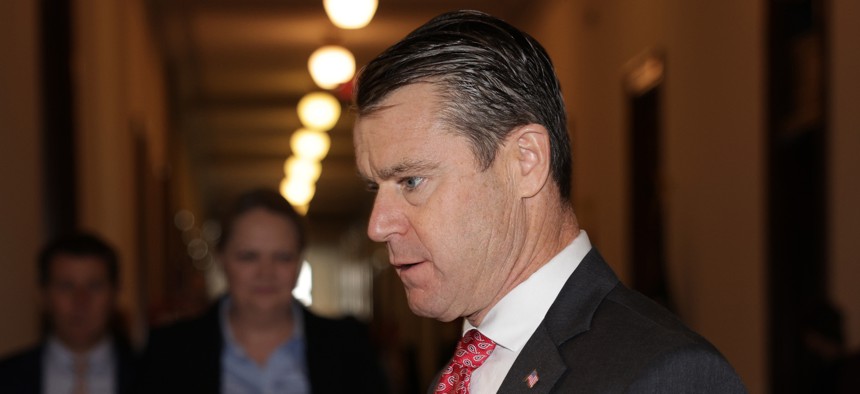Senate duo advocates for a new federal office to study the global tech landscape

Indiana Republican Sen. Todd Young, shown here arriving at one of the Senate's AI meetings in September 2023, is looking to expand the federal government's capacity to understand global technology capabilities and competitiveness. Alex Wong/Getty Images
Sens. Michael Bennet and Todd Young said the proposed executive branch office is needed to analyze technology advancement in a geopolitical context.
Two senators from opposite sides of the aisle spoke about their legislative efforts to establish a new office within the federal government to help the U.S. understand its posture in the global landscape of emerging technology innovation.
Sens. Michael Bennet, D-Colo., and Todd Young, R-Ind., advocated for their Global Technology Leadership Act during a talk hosted by the Center for Strategic International Studies on Wednesday. Introduced in June 2023, the bill would implement a formal assessment to analyze U.S. technological competitiveness relative to other countries, and further inform relevant policy.
Bennet said the idea for the bill was born from the government’s perceived lack of awareness on the domestic research and development occurring in the private sector.
“It occurred to me that we should put together some sort of institutional framework to be able to basically do an annual net technology assessment where we could look and say, ‘Okay, where are the U.S.’ strengths? And where are the adversaries’ strengths? Where are the U.S.’ weaknesses? Where are adversaries' weaknesses?’ And consider how to approach that in a strategic way,” he said.
Bennet continued to say that Congress was broadly “institutionally poor” to conduct such an assessment, hence his bill would establish a separate office dedicated to executing it.
Young added that the office the bill would create can also aid in outreach on the government’s disposition in emerging fields like quantum information sciences, semiconductor manufacturing, bioenergy technology and artificial intelligence.
“We're finding this is a major area of policymaking, but there wasn't a particular go-to area within government to aggregate this information and to put it in a consumable fashion for members of Congress and others,” Young said.
Called the “Office of Global Competition Analysis” and housed within the executive branch, its long and short-term analytical focuses would primarily emphasize the economic competitors to the U.S., namely China.
The policy decisions that could be gleaned from this office would ideally help guide strategic investments in emerging tech fields.
“Our productivity as an economy and therefore our wealth as individuals and households is very much tied to our advancement in modern technologies, which is why it's incredibly important that we're investing in these technologies,” Young said.



